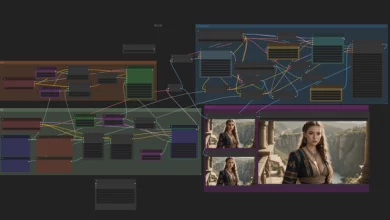
Australia is a globally renowned developed market economy, a fete largely attributed to the country’s extensive adoption of technological advancements in its various industries. A wave of technology incubators moving into the Australian digital space has helped transform its adoption of IT and continue to shape its digital future. Aussie’s technology future is poised to be an interesting one, especially due to the huge boost provided to startups in the IT sector by the government.
In our article today, we explore the current state of Australia’s digital space and what trends are shaping its IT industry.
Current State of Australian IT Industry
The tech industry in Australia is quickly growing, but, just like any industry, it is faced with various challenges. Let us take a look at the current state of the country’s IT.
Modest Growth in Tech Budgets
Gartner projects that both corporate and government budgets in the tech industry is likely to grow by 2.1%. Although the figure is below the 2.8% world average, the real numbers might be smaller according to the survey.
This growth is, however, expected to continue powering the technological innovations. More so, startups and organizations that stand to benefit from these funds will be greater poised to experience a futuristic IT.
Most Businesses Are experiencing Digital Maturation
The majority of Australian companies have reached a digital maturity point. This means that they have scaled up to or above 20%, with some now running it for profit. Two specific digital routings have been identified as Digital Transformation (DX) and Robotic Process Automation.
Future-focused IT skilled workforce as the backbone for business success
Although demand in the future workforce is hard to forecast, one thing you can expect is that technology is going to be at the center of it. Australian companies have always depended on IT for their success and their absorption of skilled labor. The priority is by far on the combination of creative problem solving and communication skills plus digital and creative skills.
The demand for an IT skilled workforce was evidenced back in 2019 when the Australian government provided permanent residency for migrants in 7 future-focused fields. The fields included but were not limited to Information and Communication Technology, Data Science, Cybersecurity, FinTech, MedTech, and Agricultural Technology.
Trends in Australia’s IT Sector
While this is the current state of the country’s IT industry, the status quo is slowly shifting from DX technologies to the innovation ecosystem as well as organizational structures. In light of this, good firms in Sydney are already adopting emerging trends to redefining the adoption of the country’s IT industry. Here we look at the 4 trends shaping the future of the Australian IT infrastructure and digital space.
Artificial Intelligence (AI)
Artificial Intelligence is basically a variety of technological innovations designed to operate in the absence of human intervention. AI spectrum includes NLP, machine learning, automation, optimization, decision support, and computer vision, among others.
Artificial Intelligence allows you to tailor your products and services continuously; hence keeping you competitive over your rivals. Australia’s AI technology adoption is at an astonishing 40% compared to the 41% adoption rate worldwide.
Artificial Intelligence is likely to take center stage in the country’s IT advancements, given the trillions of dollars it is expected to generate worldwide. Gartner, a US advisory firm, predicts that at some point, AI will be used by all software companies.
Blockchain
Most Aussie organizations are looking beyond Bitcoin. Consequently, most have opted to implement and adopt blockchain into their operations. Although it is still an emerging trend, blockchain is widely applied across the world.
A notable example is a subsidiary of the Melbourne Web Jet group, which developed a blockchain-based ledger called the Rechain. This is a rigorous platform designed to help record groups. The company estimates that 3-5% of appointments are questionable, but the adoption of this complex platform will provide a competitive advantage in their field.
As a digital platform, blockchain aids in record-keeping, verification, and storage of transactions safely and quickly. It also allows you to share this stored data across a computer network based on pre-agreed rules. Australian companies will continue to adopt this technology in the financial, bank, and governmental sectors.
The adoption of this decentralized system across the country’s IT network is only expected to rise even higher.
Internet of Things (IoT)
This intelligent digital mesh is simply the advanced communication of technologies with each other, connecting people and devices and bringing service and content together. This is a trending foundation of many emerging business models and platforms with endless possibilities to transform how we work and our lives in general.
Commonly referred to as the Internet of Things, IoT has far-reaching implications beyond ordinary technology. This IT trend in Australia is going to accommodate various disciplines such as economics, politics, law, and business at large.
The advancements in IoT have been attributed to affordable and improved sensors as well as higher computing power. Australia’s next-generation Internet of Things platforms are looking set to integrate traditional and innovative data sources. These platforms are also set to correlate various data inputs allowing them to provide real-time analysis.
In Australian Universities, IoT has come in handy in monitoring students’ study patterns, collecting data on utilization of space, student interaction and course attendance by the students and course instructors.
In hospitals, IoT has been adopted in developing smart healthcare devices which Australian medical authorities are now using to monitor their patients and get emergency alerts.
Water, energy, and road infrastructure is also taking advantage of the myriad of opportunities provided by the IoT. They are adopting it in the sensing, tracking, and handling of maintenance operations.
Last but not least, soil sensors are now helping farmers to measure soil moisture levels. This has allowed easy management of water use to improve their harvest.
Quantum computing QC
Quantum computing was initially proposed by Richard Feynman in the 1980s. Unsurprisingly, it has charmed individuals from that point onward. QC uses sub-nucleic particles for data communication hence has higher processing power. This is unlike present-day supercomputers that are use semiconductors.
Australia is a recognized world leader in silicon-based quantum computing research. It is no surprise, therefore, that notable improvements in this field are occurring directly in Australia as well. For instance, UNSW lately structured the initial two-qubit door, which can work complex issues at 0.8 nanoseconds and multiple times faster than in previous research.
Quantum computing is said to be one of the most promising technologies with the ability to build a commercially viable quantum computer. As part of the National Innovation and Science Agenda, the Australian government invested $25 million in the Silicon Quantum Computing Pty Ltd venture, in partnership with business.
Final Word
Technology is boundless. Australia’s IT industry is set out on an unparalleled growth in the coming years. Artificial Intelligence, Internet of Things, Blockchain, and Quantum Computing are poised to redefine the future of Australia’s innovative scene. Adopting sound IT solutions to realize these trends will be the make or break point for many of the country’s industries.




